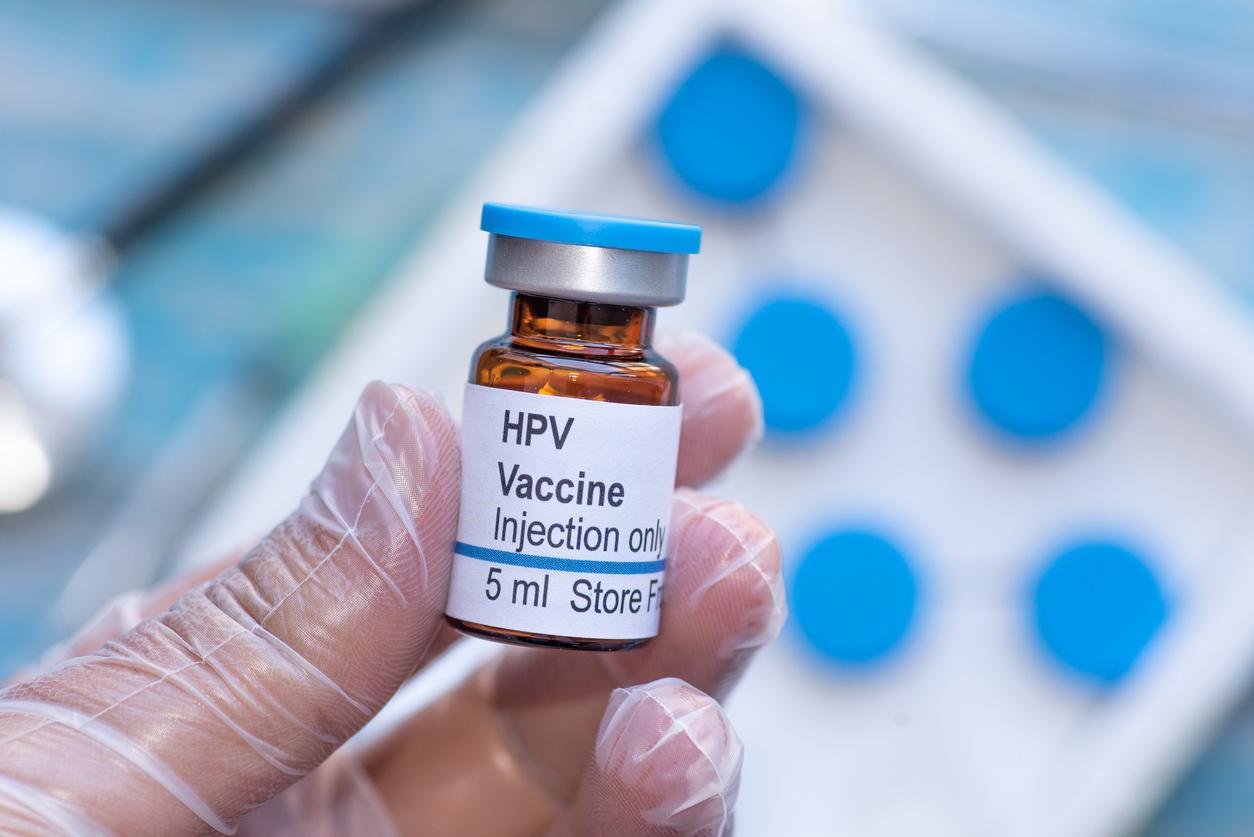The Pasteur Institute warns of the explosion in cases of meningococcal meningitis observed after the cessation of health measures put in place during the Covid-19 epidemic.

- An unprecedented rebound in meningococcal meningitis was observed in France after the cessation of health measures put in place during the Covid-19 epidemic.
- 421 cases have already been recorded between January and September 2023, an increase of 36%.
- In France, only vaccination against group C meningococcus is compulsory. Vaccination against meningococcus B is only recommended for infants.
Health measures put in place to fight against Covid-19have not only limited the transmission of the coronavirus. Other respiratory infections had declined sharply during the pandemic. For example, meningococcal meningitis which saw its number of contaminations drop by more than 75% in 2020 and 2021.
The Pasteur Institute wanted to know if the positive effect observed thanks to barrier gestures would continue. The answer – detailed in an article published in the journal Journal of Infection and Public Health October 12, 2023 – is no. A “unprecedented rebound” cases of meningococcal meningitis were observed in 2022.
Meningococcal meningitis: a 36% increase in cases
The team of scientists from the Pasteur Institute traced the evolution of cases of meningococcal meningitis in France between 2015 and 2022. “Meningococcal meningitis experienced an unprecedented rebound in the fall of 2022, with today, in the fall of 2023, a number of cases higher than the period preceding the Covid-19 pandemic”explains Samy Tahafirst author of the study and researcher in the Bacterial Infections Unit invasive at the Pasteur Institute in a communicated.
In fact, scientists counted 421 cases between January and September 2023 compared to 298 over the same period in 2019. This represents an increase of 36%, even though the winter peak has not yet occurred. For researchers, this significant increase in cases of meningococcal meningitis is explained by a drop in general immunity following the reduction in the circulation of strains as well as the 20% reduction in vaccinations against meningococcal C during the first confinement.
“Thus, the population has once again become naive in the face of constantly evolving bacteria, their genome being particularly variable”specifies the organization’s press release.
“Moreover, meningococci of groups W and Y appeared much more numerous than the others after the pandemic, continues Ala-Eddine Deghmaneco-senior author of the study and deputy head of the National Meningococcal Reference Center at the Institut Pasteur. And if all age categories are affected, it turns out that those most affected by this new wave of meningitis are young people aged 16 to 24.” Thus, the bacterial strains of meningococci currently circulating are no longer the same as before the pandemic. “VS“It’s a bit as if, with the Covid-19 epidemic, the whole system had been reset.”, adds Samy Taha.

Meningococcal meningitis: vaccination could reduce the rise in cases
The Pasteur Institute warns of a possible resurgence of meningitis in the coming months with the seasonal flu epidemic. “The influenza virus creates a favorable context for the development of meningococcal bacteria. Furthermore, all large gatherings are conducive to contamination in general and to the spread of meningococcal meningitis in particular.specifies the organization.
In France, only vaccination against meningococcus group C is mandatory, that against meningococcus B is simply recommended for infants. Furthermore, there are no recommendations yet for the general population against groups Y and W. teams from the Pasteur Institute working with the High Health Authority to adapt the vaccination strategy. “If the tetravalent vaccine targeting group A, C, Y and W meningococci was recommended for adolescents, this would protect them directly, but also indirectly protect other categories of the population.”, ensures Ala-Eddine Deghmane. Adolescents are in fact the first healthy carriers of meningococcus. “And we must not forget that without treatment, bacterial meningitis is almost 100 times fatal. % and even correctly treated, mortality remains 10%. This underlines the importance of vaccination prevention.”, warns Muhamed-Kheir Taha.
















